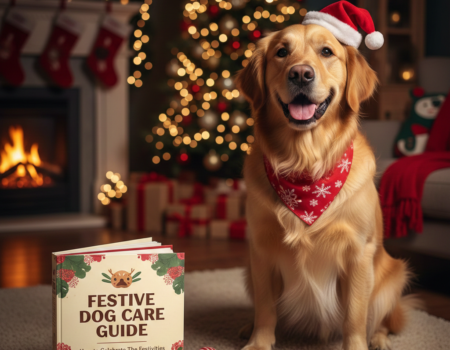Brindle Cane Corso: Traits, Care, and Training
Did you know that the Brindle Cane Corso is one of the rarest colors found in this remarkable breed? With their distinctive coat and robust temperament, these dogs are truly a sight to behold.
The Brindle Cane Corso is a majestic breed known for its intelligent, loyal, and versatile nature. With a large stature, expressive face, and muscular appearance, they stand out wherever they go. This unique color variation adds an extra layer of elegance to an already striking breed.
Originating in ancient Greece and Rome, the Cane Corso gained popularity in the United States in the 1980s. They have a rich history of serving as protective watchdogs and reliable farmhands.
In this article, we will explore the traits, care, and training that are essential for the well-being of a Brindle Cane Corso. Whether you’re a current owner or considering bringing one of these magnificent dogs into your family, this guide will provide you with valuable insights to ensure a fulfilling and harmonious relationship.
Key Takeaways:
- The Brindle Cane Corso is one of the rarest colors found in the breed.
- Their distinctive coat adds an extra layer of elegance to their already striking appearance.
- Cane Corsos originated in ancient Greece and Rome and have a rich history of serving as protective watchdogs.
- This article will provide valuable insights into the traits, care, and training of a Brindle Cane Corso.
- Whether you’re a current owner or considering bringing one into your family, this guide will help you develop a fulfilling relationship with this remarkable breed.
Caring for a Cane Corso
When it comes to caring for a Cane Corso, there are a few important aspects to consider. From socialization and training to exercise needs and grooming, providing the right care is crucial for their well-being and overall happiness. In this section, we will explore the key elements of Cane Corso care.
Early Socialization and Training
Proper socialization from an early age is vital for Cane Corsos. They are intelligent dogs that thrive when exposed to various people, animals, and environments. Socializing them helps ensure they become well-adjusted and friendly companions.
“Socialization plays a crucial role in shaping a Cane Corso’s behavior and temperament. It helps them develop the confidence and social skills necessary to navigate different situations and interact positively with others.” – Cane Corso Breeders Association
Exercise Needs
Cane Corsos are an active breed that requires regular exercise to keep them physically and mentally stimulated. Aim for at least an hour of exercise every day to fulfill their energy needs. This can include long walks, jogging, playtime, or even structured activities like agility training.
To ensure they remain happy and healthy, we need to meet their exercise requirements and provide them with enough mental stimulation. An enriched environment with toys, puzzles, and interactive games can help keep their minds engaged and prevent boredom.
Grooming
One of the advantages of owning a Cane Corso is their low-maintenance coat. Their short, smooth fur requires minimal grooming. However, regular brushing is still recommended to keep their coat in good condition and to remove any loose hair.
| Grooming Aspect | Frequency |
|---|---|
| Brushing | Weekly |
| Bathing | As needed |
| Nail trimming | Monthly |
| Ear cleaning | Weekly |
Lifespan
The average lifespan of a Cane Corso ranges from 9 to 12 years, which is longer than that of many other giant breed dogs. However, individual lifespans can vary depending on genetics and the overall care they receive. Providing them with a balanced diet, regular exercise, and routine veterinary check-ups can contribute to their longevity.
“Cane Corsos are a generally healthy breed, but like all dogs, they can be prone to certain health issues. Regular vet visits and preventive care can help identify and address any potential health concerns early on, increasing the chances of a longer, healthier life.” – Dr. Emily Johnson, DVM
In the next section, we will delve into the specific health issues that Cane Corsos can be prone to and how to address them.
Cane Corso Health Issues
As with any breed, Cane Corsos are susceptible to certain health issues that owners should be aware of. By understanding and addressing these concerns, we can help ensure the well-being of our Cane Corsos.
1. Obesity
Obesity is a common problem in Cane Corsos and can lead to a host of health complications. It is vital to provide them with a well-balanced diet and regular exercise to prevent excessive weight gain and maintain their overall health and vitality. Regular walks, playtime, and controlled portion sizes are key in keeping our Cane Corsos fit and healthy.
2. Hip Dysplasia
One of the most prevalent joint issues in Cane Corsos is hip dysplasia. This condition occurs when the hip joint does not develop correctly, leading to discomfort, pain, and impaired mobility. Regular exercise, maintaining a healthy weight, and appropriate breeding practices can help minimize the risk of hip dysplasia in Cane Corsos.
3. Epilepsy
Epilepsy, characterized by recurring seizures, can affect Cane Corsos. This neurological disorder usually manifests around three years of age. While there is no cure for epilepsy, it can be managed with medication and proper veterinary care. By working closely with our veterinarians, we can provide the necessary support and treatment to improve our Cane Corsos’ quality of life.
4. Demodectic Mange
Demodectic mange, a skin condition caused by microscopic mites, can affect Cane Corsos, particularly in puppies with immature immune systems. In some cases, demodectic mange can also develop in adult dogs with underlying health issues. Detecting and treating demodectic mange early can help prevent its spread and ensure the well-being of our Cane Corsos.
5. Eyelid Abnormalities
Cane Corsos may also be prone to eyelid abnormalities, which can include conditions such as entropion (inward rolling of the eyelid) or ectropion (outward sagging of the eyelid). These abnormalities can cause discomfort, eye irritation, and potential damage to the cornea. Regular eye examinations with a veterinarian can help diagnose and address any eyelid abnormalities in Cane Corsos.
6. Bloat
Bloat, or gastric dilatation-volvulus, is a life-threatening condition that can affect Cane Corsos. It occurs when the stomach becomes distended and twists, leading to a blockage of blood flow and potentially fatal consequences. Immediate veterinary attention is crucial in such cases. Feeding smaller, more frequent meals and avoiding strenuous exercise after meals can help reduce the risk of bloat in Cane Corsos.
In summary, Cane Corsos are wonderful companions, but it’s important to be aware of their potential health issues. By providing a balanced diet, regular exercise, and routine veterinary care, we can help ensure their overall health and well-being.
What To Feed a Cane Corso
Feeding a Cane Corso a high-quality, age-appropriate diet is essential for their overall health and well-being. At [Brand Name], we understand the importance of providing your Cane Corso with the right nutrition to support their active lifestyle. Our specially formulated Cane Corso diet is designed to meet their unique nutritional needs, ensuring optimal growth, energy, and vitality.
When it comes to feeding your Cane Corso, it is recommended to follow a consistent feeding schedule to establish a routine. This helps regulate their metabolism and prevent overeating. Here is a sample feeding schedule to consider:
- Morning: [Brand Name] Cane Corso Adult Formula
- Mid-morning: Healthy snack or treat
- Afternoon: [Brand Name] Cane Corso Adult Formula
- Evening: [Brand Name] Cane Corso Adult Formula
- Night: Healthy snack or treat
By dividing their daily food intake into multiple smaller meals, you can minimize the risk of bloat, a condition that is common in large breeds like the Cane Corso. This feeding schedule ensures a steady release of energy throughout the day, keeping your Cane Corso satisfied and nourished.
Nutritional Needs of a Cane Corso
The nutritional needs of a Cane Corso vary depending on factors such as age, size, activity level, and overall health. It is important to consult with your veterinarian to determine the appropriate portion sizes and ensure your Cane Corso receives a well-balanced diet.
Our [Brand Name] Cane Corso formula is carefully crafted to provide the necessary nutrients for optimal growth and development. It includes a balanced combination of high-quality proteins, essential vitamins and minerals, and healthy fats to support their muscle growth, immune system, and overall well-being.
Image:
Cane Corso Personality and Temperament
The Cane Corso is known for its loyal, confident, and protective temperament. They make excellent companions and are particularly good with older children. It’s crucial to socialize them from a young age to ensure they are accepting of new people, animals, and various situations. While they have a natural instinct to protect, with proper training and socialization, they can be well-behaved and gentle dogs.
The Cane Corso breed is reserved, calm, and attentive to their surroundings, which makes them excellent guard dogs. However, it’s important to note that they are not aggressive by nature and should never be treated as such.
Proper socialization is essential for a Cane Corso to develop good behavior. As they have a protective instinct, early socialization helps them differentiate between genuine threats and regular situations. This socialization includes positive exposure to different people, animals, and environments while teaching them appropriate behavior and responses.
With the right guidance, a well-socialized Cane Corso can be a guardian and family member rolled into one. Proper socialization helps them become confident and reliable companions.
Cane Corso Socialization Tips:
- Start socializing your Cane Corso from a young age to develop positive associations with a variety of people, animals, and situations.
- Expose your Cane Corso to new experiences gradually, ensuring they feel safe and comfortable. This can include visits to different environments, meeting new people and animals, and exposing them to various sounds, objects, and stimuli.
- Provide consistent training and positive reinforcement to reinforce positive behaviors and responses.
- Enroll your Cane Corso in puppy classes or obedience training to enhance their socialization skills and establish a strong bond with you.
- Continue socializing your Cane Corso throughout their life to maintain their well-rounded temperament.
Remember, a well-socialized Cane Corso is more likely to be confident, friendly, and adaptable to different situations. Proper socialization, combined with positive reinforcement and consistent training, helps shape their personality and behavior.
| Personality Traits | Behavior | Socialization |
|---|---|---|
| Loyal | Confident | Accepting of new people, animals, and situations |
| Protective | Gentle | Proper socialization develops good behavior |
| Reserved | Attentive | Exposure to a variety of people, animals, and environments |
| Calm | Well-behaved | Confident and reliable companions with socialization |
Exercise and Training Tips for a Cane Corso
Cane Corsos are active and driven dogs that require regular exercise to keep them physically and mentally stimulated. To meet their exercise needs, we recommend engaging in daily activities such as brisk walks or jogs. These exercises not only provide physical exertion but also allow them to explore their surroundings and satisfy their natural instincts.
In addition to regular exercise, interactive play sessions are essential for Cane Corsos. Incorporate games like fetch, tug of war, and hide-and-seek to keep them mentally engaged and strengthen the bond between you and your canine companion.
Mental stimulation is equally important for a Cane Corso’s well-being. Providing tasks or jobs to challenge their intellect can prevent boredom and curb potential behavioral issues. Engaging in obedience training, teaching new tricks, and introducing puzzle toys are excellent ways to stimulate their minds.
Consistent training using positive reinforcement is vital for a Cane Corso’s development and well-being. Rewarding desired behaviors with treats, praise, and affection helps them understand what is expected of them and encourages positive habits. Avoid harsh training methods or punishment, as it can cause fear-based aggression and hinder the training process.
Remember to consider your Cane Corso’s individual needs when planning exercise and training routines. Each dog may have different energy levels and preferences, so be attentive to their signals and adjust accordingly. By providing regular physical exercise, mental stimulation, and positive training experiences, you can help your Cane Corso thrive and lead a happy, well-balanced life.
Check out the table below for a summary of exercise and training tips:
| Exercise Tips | Training Tips |
|---|---|
|
|
Common Cane Corso Health Issues
Cane Corsos are majestic and loyal dogs, but like any breed, they can be prone to certain health issues. It’s important for Cane Corso owners to be aware of these potential problems and take proactive steps to manage and prevent them. In this section, we will discuss three common health concerns that affect Cane Corsos: joint problems, bloat, and anxiety.
Cane Corso Joint Problems
Joint problems, such as hip dysplasia and arthritis, are common in Cane Corsos. These conditions can cause pain, discomfort, and mobility issues for your furry friend. To support their joint health, it’s important to manage their weight through a balanced diet and regular exercise. Additionally, joint protection supplements can provide added support and help alleviate symptoms. Regular veterinary check-ups and screenings can help detect these issues early, allowing for prompt treatment and management.
Cane Corso Bloat
Bloat, also known as gastric dilatation-volvulus (GDV), is a life-threatening condition that can affect large and giant breed dogs, including Cane Corsos. Bloat occurs when the stomach fills with gas or fluid, causing it to twist and trap the contents inside. This condition requires immediate veterinary attention, as it can lead to tissue damage, organ failure, and death if left untreated. Prevention is key, and feeding techniques, such as using slow-feeders or puzzle toys, can help reduce the risk of bloat. In some cases, a surgical procedure known as gastropexy may be recommended to prevent the stomach from twisting.
Cane Corso Anxiety
Cane Corsos are known for their protective nature, but they can also be prone to anxiety, especially when left alone for long periods. Separation anxiety can manifest in various ways, such as destructive behavior, excessive barking, or self-harming behaviors. To help alleviate anxiety in Cane Corsos, it’s important to provide proper training, socialization, and mental stimulation. Creating a safe and comforting environment, using positive reinforcement techniques, and gradually increasing time spent apart can help them cope with their anxiety.
It’s important to note that while Cane Corsos may be predisposed to certain health issues, every dog is an individual, and not all dogs will experience these problems. Regular veterinary care, a well-balanced diet, proper exercise, and a loving environment can go a long way in promoting the health and well-being of your Cane Corso.
| Health Issue | Description | Prevention and Management |
|---|---|---|
| Joint Problems | Includes hip dysplasia and arthritis, causing pain and mobility issues. | – Manage weight through a balanced diet and regular exercise – Use joint protection supplements – Regular veterinary check-ups – Early treatment and management |
| Bloat | Life-threatening condition where the stomach twists, trapping the contents inside. | – Feed using slow-feeders or puzzle toys – Consider gastropexy surgery to prevent twisting – Seek immediate veterinary attention if symptoms occur |
| Anxiety | Predisposition to separation anxiety when left alone for long periods. | – Proper training and socialization – Provide mental stimulation – Create a comforting environment – Gradual increase in time spent apart |
Grooming and Care for a Cane Corso
The Cane Corso is a low-maintenance breed when it comes to grooming. Their short, coarse double coat requires minimal attention to keep it clean and healthy. Regular brushing is recommended to remove loose hair and keep their coat looking its best. This also helps distribute their natural oils, promoting a healthy skin and coat. A bristle brush or a grooming mitt is ideal for their short hair.
While Cane Corsos are moderate shedders, they may require additional brushing during shedding seasons to minimize the amount of hair they leave around the house. This can help to keep their coat in good condition and reduce the need for excessive cleaning. It’s important to note that Cane Corsos do not typically require bathing unless they get exceptionally dirty.
Nail trimming is an essential part of Cane Corso grooming to prevent overgrowth and discomfort. You can use a dog nail clipper or grinder to maintain their nails at a proper length. It’s important to note that dogs’ nails have a blood vessel called the quick, so be cautious to avoid cutting it. If you’re unsure or uncomfortable with trimming your Cane Corso’s nails, consult a professional groomer or a veterinarian for assistance.
Proper grooming and care are essential for maintaining the health and well-being of your Cane Corso.
Training and Socialization for a Cane Corso
Proper training and socialization are crucial for ensuring a well-behaved and mentally balanced Cane Corso. Starting training from a young age and using positive reinforcement techniques, such as treats and praise, can help these intelligent dogs learn and respond effectively. By rewarding good behavior, we can motivate them to repeat desired actions and commands. Consistency and clear expectations are key in their training process.
Socializing a Cane Corso involves exposing them to various people, animals, and environments in a positive and controlled manner. This helps them become comfortable and friendly in different situations, reducing the risk of fear-based aggression. Introducing them to new experiences gradually and rewarding calm and confident behavior can build their confidence and trust.
Attending obedience classes or hiring a professional trainer can be highly beneficial, especially for owners who are new to the breed or need guidance in handling their Cane Corso. Trainers can provide specialized guidance tailored to the specific needs and challenges of the breed, helping owners develop effective training routines and solving behavioral issues.
The key to training a Cane Corso is patience, positive reinforcement, and establishing a strong bond built on trust and respect.
Training Tips for a Cane Corso:
- Start training from an early age to establish good habits and correct behavior.
- Use positive reinforcement techniques, like treats and praise, to reward desired behaviors.
- Keep training sessions short and engaging to maintain their focus and interest.
- Be consistent with commands and expectations to avoid confusion.
- Expose them to different people, animals, and environments to promote socialization.
- Avoid harsh training methods, as they can lead to fear-based aggression.
- Stay patient and persistent, as it may take time for them to fully grasp certain commands or behaviors.
Socialization Tips for a Cane Corso:
- Expose them to different people, including children, to ensure they are comfortable and friendly around humans.
- Introduce them gradually to other animals, starting with calm and well-behaved dogs.
- Take them to various environments, such as parks and busy streets, to familiarize them with different sights, sounds, and smells.
- Provide positive reinforcement, treats, and praise when they exhibit calm and relaxed behavior in new situations.
- Continue to socialize them throughout their lives to maintain their confidence and adaptability.
| Training Dos | Training Don’ts |
|---|---|
| Use positive reinforcement | Use harsh training methods |
| Be consistent with commands | Let them exhibit dominant behavior |
| Start training from a young age | Overwhelm them with too much information at once |
| Keep training sessions short and engaging | Ignore their behavioral issues |
Proper training and socialization are vital for a Cane Corso’s well-being, ensuring they grow into confident, well-mannered companions. By investing time and effort in their training journey, we can enjoy a harmonious and fulfilling relationship with our beloved Cane Corso.
Conclusion
The Brindle Cane Corso is a remarkable breed known for its striking appearance and loyal temperament. This breed requires proper care, training, and socialization to thrive as companions. While they may have specific health issues and exercise needs, their unique qualities make them an excellent choice for experienced dog owners who can provide them with the attention and care they deserve.
With the right training and care, a Brindle Cane Corso can be a loving and devoted member of a family. Their striking appearance and muscular stature make them an impressive sight, while their loyalty and protectiveness make them excellent guard dogs. Cane Corsos are intelligent and eager to please their owners, making them quick learners and well-behaved when properly trained.
It is important to note that owning a Brindle Cane Corso requires a commitment to their well-being. Regular exercise, mental stimulation, and socialization are crucial for their overall happiness and development. Additionally, being aware of common health issues and proactively managing them can ensure a long and healthy life for your Cane Corso.
Overall, the Brindle Cane Corso is a breed that offers a unique combination of striking appearance, loyalty, and dedication to their owners. If you are an experienced dog owner looking for a loyal and devoted companion, the Brindle Cane Corso could be the perfect addition to your family.
FAQ
What are the traits of a Brindle Cane Corso?
Brindle Cane Corsos are known for their distinctive coat and robust temperament. They are intelligent, loyal, and versatile dogs that make excellent companions. With their large stature, expressive faces, and muscular appearance, they are truly majestic.
How long do Cane Corsos typically live?
The average lifespan of a Cane Corso is around 9-12 years, which is relatively long for giant breed dogs.
What colors do Cane Corsos come in?
Cane Corsos come in a variety of colors, including brindle. Brindle is characterized by a dark coat with streaks or flecks of a lighter color, creating a beautiful and unique pattern.
Are Brindle Cane Corsos good with children?
Yes, Cane Corsos are generally good with older children. However, as with any dog, proper socialization and training are important to ensure they interact well with children.
How much exercise does a Cane Corso need?
Cane Corsos are active dogs that require regular exercise to keep them physically and mentally stimulated. Daily walks, jogs, and playtime are recommended to meet their exercise needs.
Do Cane Corsos have any specific health issues?
Like all breeds, Cane Corsos are prone to certain health issues. Some common ones include hip and elbow dysplasia, obesity, epilepsy, demodectic mange, eyelid abnormalities, and bloat. Regular vet check-ups and a healthy lifestyle can help manage these concerns.
How should I groom my Cane Corso?
Cane Corsos have short, coarse coats that require minimal grooming. Weekly brushing is recommended to keep their coat clean and healthy. Additionally, regular nail trimming is necessary to prevent overgrowth.
Are Cane Corsos aggressive?
Cane Corsos are not naturally aggressive, but they have a protective instinct. With proper training and socialization, they can be well-behaved and gentle dogs.
What should I feed my Cane Corso?
Feeding a high-quality, age-appropriate diet is essential for the overall health of your Cane Corso. It is recommended to consult with a veterinarian to determine the right portion sizes and specific nutritional needs for your dog.
How should I train and socialize my Cane Corso?
Training and socialization should start from a young age. Positive reinforcement techniques and exposing them to different people, animals, and environments will help them become well-adjusted and friendly dogs.










No Comment! Be the first one.